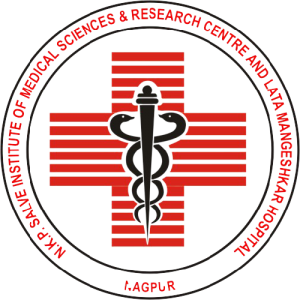- Visibility 109 Views
- Downloads 74 Downloads
- Permissions
- DOI 10.18231/pjms.v.15.i.2.450-457
-
CrossMark
- Citation
An assessment of knowledge, attitudes, and practices on hand hygiene among medical students with in a healthcare facility
- Author Details:
-
Divya Sharma
-
Disha Sharma *
Background: Hospital-acquired infections (HAIs) are a significant concern globally. Horizontal transmission, where pathogens spread from one patient to another or from healthcare workers to patients, is a common route of transmission for hospital-acquired microbes. Factors such as inadequate hand hygiene, contaminated medical equipment, environmental contamination, and overcrowding can contribute to the spread of these pathogens within healthcare settings. Hand hygiene is one of the most critical meaure to prevent the spread of hospital-acquired infections. When performed effectively, it helps reduce the risk of healthcare-associated infections (HAIs) by removing harmful microbes from healthcare workers' hands, preventing the transmission of pathogens to patients and the surrounding environment.
Aim: To evaluate the understanding of hand hygiene practices and critical moments in its implementation among medical students of phase I,II, and III.
Materials and Methods: This study was done on a total number of 250 respondents who were enrolled in the MBBS curriculum in phases I,II and III in tertiary care hospital in India. A structured, self-administered questionnaire instrument was employed to evaluate hand hygiene, which consisted of three components: knowledge, attitude and self-reported practice regarding hand hygiene. The Z-test was applied to compare the percentage of correct responses between medical students, with a p-value of less than 0.05 regarded as statistically significant.
Result: A total 250 participants were surveyed to assess their knowledge, attitude regarding hand hygiene practices. The results revealed that majority (80.8%) of students had moderate knowledge regarding hand hygiene, with significant difference between the two groups. The study also revealed that the majority of students held poor attitudes towards hand hygiene. Phase II/III students had significantly better attitudes compared to phase I medical students however there was a significant difference between the two groups regarding the confidence with respect to knowledge in hand hygiene. Of the participants, 56% demonstrated good hand-hygiene practice, 26.8% had moderate practices and 17.2% showed poor practice.
Conclusion: Evaluating students' knowledge, attitudes, and practices related to hand hygiene is essential for understanding their awareness and behavior in preventing the spread of infectious diseases. The present study emphasizes the need for conducting regular training sessions on hand hygiene practices for healthcare workers. To develop a knowledgeable attitude and effective practices towards hand hygiene, education on the topic should be introduced early in the curriculum, with continuous training provided at regular intervals.
References
- Monegro AF, Muppidi V, Regunath H. Hospital-Acquired Infections. [Updated 2023 Feb 12]. In: StatPearls [Internet]. Treasure Island (FL): StatPearls Publishing; 2024 Jan-. Available from: https://www.ncbi.nlm.nih.gov/books/NBK441857/
- Safety WP, World Health Organization. Hand hygiene technical reference manual: to be used by health-care workers, trainers and observers of hand hygiene practices. 2009. https://www.who.int/publications/i/item/9789241598606
- Trampuz A, Widmer AF. Hand hygiene: a frequently missed lifesaving opportunity during patient care. Mayo Clin Proc. 2004;79(1):109–16.
- World Health Organization. The burden of health care-associated infection worldwide. 2010. https://www.who.int/news- room/feature-stories/detail/the-burden-of-health-care- associated- infection-worldwide
- Pittet D, Allegranzi B, Sax H, Dharan S, Pessoa-Silva CL, Donaldson L, et al. Evidence-based model for hand transmission during patient care and the role of improved practices. Lancet Infect Dis. 2006;6(10):641–52.
- Tao SY, Cheng YL, Lu Y, Hu YH, Chen DF. Handwashing behaviour among Chinese adults: A cross-sectional study in five provinces. Public Health. 2013;127(7):620–8.
- Trick WE, Vernon MO, Hayes RA, Nathan C, Rice TW, Peterson BJ, et al. Impact of ring wearing on hand contamination and comparison of hand hygiene agents in a hospital. Clin Infect Dis. 2003;36(11):1383–90.
- WHO Guidelines on Hand Hygiene in Health Care First Global Patient Safety Challenge Clean Care is Safer Care. 2009. http://whqlibdoc.who.int/ publications/2009/9789241597906_eng.pdf
- Hand hygien e. Monitoring tools. https://www.who.int/teams/integrated-health-services/infection- prevention-control/hand-hygiene/monitoring-tools
- Ariyaratne MH, Gunasekara TD, Weerasekara MM, Kottahachchi J, Kudavidanage BP, Fernando SS. Knowledge, attitudes and practices of hand hygiene among final year medical and nursing students at the University of Sri Jayewardenepura. Sri Lankan J Infect Dis. 2013;3(1):15–25
- Al Kadi A, Salati SA. Hand Hygiene Practices among Medical Students. Interdiscip Perspect Infect Dis. 2012;2012:679129.
- Abd Elaziz KM, Bakr IM. Assessment of knowledge, attitude and practice of hand washing among health care workers in Ain Shams University hospitals in Cairo. J Prev Med Hyg. 2009;50(1):19–25.
- Chagpar A, Banez C, Lopez R, Cafazzo JA. Challenges of hand hygiene in healthcare: the development of a tool kit to create supportive processes and environments. Healthc Q. 2010;13:59–66.
- Feather A, Stone SP, Wessier A, Boursicot KA, Pratt C. 'Now please wash your hands': the handwashing behaviour of final MBBS candidates. J Hosp Infect. 2000;45(1):62–4.
- Vaishnav B, Bamanikar A, Dasgupta S, Reddy A. Aseptic-clinical hand hygiene knowledge survey amongst health care workers in a tertiary care hospital in western India. Int J Res Med Sci. 2016;4(9):4176–82.
- Nabavi M, Alavi-Moghaddam M, Gachkar L, Moeinian M. Knowledge, attitudes, and practices study on hand hygiene among Imam Hossein Hospital’s residents in 2013. Iran Red Crescent Med J. 2015;17(10):e19606.
How to Cite This Article
Vancouver
Sharma D, Sharma D. An assessment of knowledge, attitudes, and practices on hand hygiene among medical students with in a healthcare facility [Internet]. Panacea J Med Sci. 2025 [cited 2025 Oct 27];15(2):450-457. Available from: https://doi.org/10.18231/pjms.v.15.i.2.450-457
APA
Sharma, D., Sharma, D. (2025). An assessment of knowledge, attitudes, and practices on hand hygiene among medical students with in a healthcare facility. Panacea J Med Sci, 15(2), 450-457. https://doi.org/10.18231/pjms.v.15.i.2.450-457
MLA
Sharma, Divya, Sharma, Disha. "An assessment of knowledge, attitudes, and practices on hand hygiene among medical students with in a healthcare facility." Panacea J Med Sci, vol. 15, no. 2, 2025, pp. 450-457. https://doi.org/10.18231/pjms.v.15.i.2.450-457
Chicago
Sharma, D., Sharma, D.. "An assessment of knowledge, attitudes, and practices on hand hygiene among medical students with in a healthcare facility." Panacea J Med Sci 15, no. 2 (2025): 450-457. https://doi.org/10.18231/pjms.v.15.i.2.450-457
